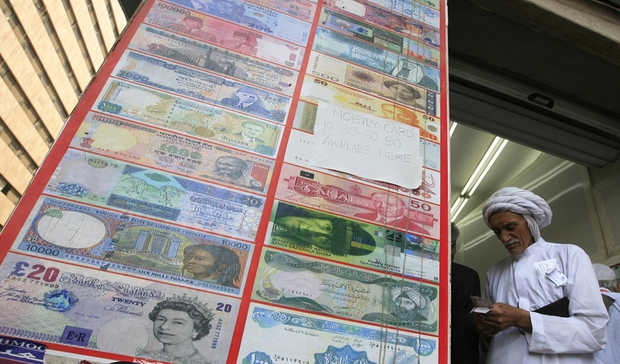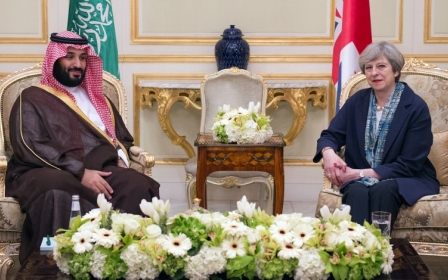ANALYSIS: Change to Saudi bankruptcy law should give economy a boost

Saudi Arabia is changing its bankruptcy laws in a move that should help the country diversify its economy away from oil.
The change, which came from King Salman in February, will undoubtedly help boost much-needed foreign investment in the kingdom. That’s because, up until now, there has not been a satisfactory way to deal with an insolvent corporation. That’s a significant disincentive to foreign and domestic business people to set up shop in the country.
“The lack of bankruptcy legislation has acted as a key deterrent to entrepreneurs in Saudi Arabia as well as to the willingness of local banks to provide financing to business start-ups,” states a recent report from Capital Economics
In the US, we used to lock people up when they went bankrupt.
- Robert Wright, economic historian
In the simplest terms, the problem was that there was no formalised way for a company to declare bankruptcy and have its debts wiped out or even restructure its loans.
The impact on the economy for the lack of such laws has meant that the percentage of total bank lending made to small or medium-sized businesses is a minuscule two percent versus around 15 percent in Lebanon and more than 30 percent in Morocco, according to Capital Economics.
Bank lending usually is considered a vital source of funds for such enterprises, which typically lack the scale needed to access capital via the stock market or the wholesale credit markets. Banks were probably reluctant to lend due to the lack of a well-greased legal pathway to seize corporate collateral if a loan turned bad.
The Capital Economics report also points to the ridiculous inefficiency of the current system for sorting out a corporate insolvency. It cites the example of negotiations over the $22 billion debts of the Al-Gosaibi Group which first defaulted in 2009. Almost a decade later the wrangling continues, according to the report.
More risk-takers needed
Why is this change to the law such a big deal? It is all to do with promoting entrepreneurial risk-taking. It sometimes helps to look at a little history as an instructive example.
“In the US, we used to lock people up when they went bankrupt,” said Robert Wright, economic historian, and professor of political economy at Augustana University in Sioux Falls, South Dakota. “Think about that from the standpoint of an entrepreneur; are you going to want to go to prison if the business venture doesn’t pan out? Are you going to want to take any risk? Probably not.”
Wright has a point. The archaic bankruptcy laws of the western world did little to promote risk-taking by business people. If a venture failed the business person ended up in prison until their friends or family could get them out by paying off their debts. That has changed and now the US and much of the West have bankruptcy laws that allow debts to be wiped clean, allowing a failed entrepreneur to have another attempt at creating a business.
In the US, the system comes with some costs. “A high percentage of businesses fail,” he said. But that doesn’t matter because the banks and investors have adapted to take account of the losses, he said. Overall, the US economy is better off.
That’s why the introduction of the new laws in Saudi Arabia are so needed right now. The kingdom needs risk takers who are prepared to invest capital in new businesses that will take the country away from its dependency on oil.
What exactly will the new law say? That’s not been finalised yet, but based on previous drafts, Capital Economics says for firms that may have had a temporary problem of securing financing then, the new rules will take an approach not unlike that of the US Chapter 11.
Under Chapter 11, firms get protection from creditors so that the firm can restructure its debts. Often, that means the lenders might have to lose some, but not all, of their initial investment or loans.
For entirely broken firms (those where new financing wouldn't save the venture), new procedures will get formalised that will speed up the process of liquidating the remaining assets. That’s key because the assets once sold can be used by other firms, and the creditors might get some cash as well.
Improving the business landscape
This change to the law should improve the business environment and encourage more foreign direct investment, according to Garbis Iradian, chief economist for the Middle East and North Africa at the Washington, DC-based Institute of International Finance (IIF).
“You should have the right incentives,” he said, and apparently the new legal structure is part of aligning the law with the desired behaviour of the global business community towards Saudi Arabia.
The move to liberalise the bankruptcy law is but one part of making the kingdom attractive to foreign direct investment (FDI). FDI is the investment in ventures not done through the securities markets.
Currently, the country ranked a dire 92 out of 190 in the 2018 World Bank’s latest Ease of Doing Business list. It compares to a more favourable ranking of 21 for the United Arab Emirates, which itself is a better place for doing business than Austria, a part of the European Union.
However, the kingdom is moving in the right direction when it comes to the business environment particularly when it comes to eliminating bureaucracy or so-called red tape.
“Saudi Arabia made starting a business easier through the use of an online system [… and] also improved the online payment system, removing the need to pay fees in person,” states the World Bank report. It also made changes to increase corporate transparency and introduced an online system for checking on property ownership and associated loans.
Is it enough? No. At least not by current measures from the World Bank, neighbouring UAE is a far better bet for the foreign investor who wants to start a business. “They have to do more and if they want to achieve the diversification of the economy,” said IIF's Iradian.
Still, the country does appear to be pointed in the right direction on this matter.
Stay informed with MEE's newsletters
Sign up to get the latest alerts, insights and analysis, starting with Turkey Unpacked
Middle East Eye delivers independent and unrivalled coverage and analysis of the Middle East, North Africa and beyond. To learn more about republishing this content and the associated fees, please fill out this form. More about MEE can be found here.





